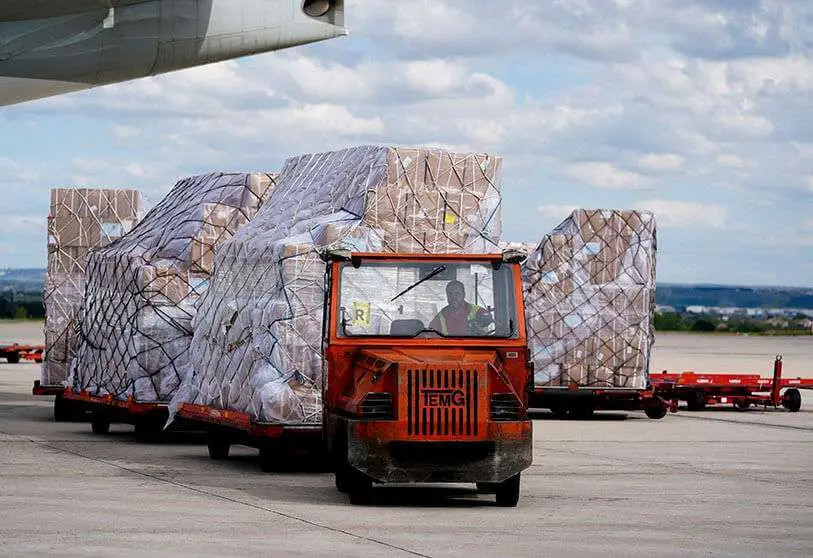China and the policy of generosity

The SARS-CoV-2 pandemic, already known as the coronavirus, has triggered an unprecedented economic and health crisis that is affecting all countries in the developed world and is beginning to wreak havoc on the African and South American continents. Reactions, declarations and attitudes on the part of state leaders and international organizations such as the World Health Organization (WHO) have been extremely disparate. Various theories, ideas and predictions have been offered from the political class, and some terms once reserved for the field of epidemiology have become globally known: for example, the expression flatten the curve is now a mantra repeated by all the media and governments.
However, there is one term that has gone virtually unnoticed in the midst of the maelstrom of information and disinformation that has become established in our daily lives. It is the politics of generosity, to which Josep Borrell, the European Union's High Representative for Foreign Affairs, referred on 24 March. China, which has left behind the worst part of the coronavirus health crisis, has taken a step forward, sending thousands of masks and equipment to the European countries most affected by the pandemic, such as Italy and Spain. In addition to such donations, China has also exported the know-how learned by its healthcare workers: on 20 March the vice-president of the Red Cross in China, Sun Shuopeng, gave a conference in Lombardy warning of the relative laxity of the containment measures decreed in Italy.
Pictures showing hundreds of boxes full of medical equipment being received at European airports have gone around the world. China therefore seems to offer an image of global leadership in an extremely turbulent time. This is what Borrell meant when he spoke of the politics of generosity, warning of the geopolitical struggle that is taking place as a result of the pandemic. China, through its generous donations, may have occupied the space that many hoped would belong to the European Union, divided for weeks on the question of how to deal with the health and economic crisis. Some European leaders, such as Emmanuel Macron (who warned that countries receiving Chinese aid could literally be "drunk" on it) perceive the policy of generosity as a long-term risk to the European project. Chinese solidarity is welcome and even necessary, but it will not be free.
This is not the first time that China has shown itself to be in tune with Italy. In 2019, the Italian government led by Giuseppe Conte joined the Belt & Road Initiative (BRI) project. The BRI is a gigantic network of infrastructures and investments promoted and financed by China that aims to be the heir to the mythical Silk Road that linked Europe with the Far East, and with which China would guarantee an important economic presence in the countries of Central Asia and Europe. Italy therefore became one of the first EU countries to be part of this macro project. Greece is also part of the BRI. On the other hand, other European countries, such as France, have shown misgivings about the macro-project, which highlights the lack of a common European policy towards the Asian giant.
The coronavirus crisis has offered the Chinese government an opportunity to project its presence even more abroad, and especially in a paralysed Europe. Over the last few decades, China has strengthened its presence in several developing countries, such as Angola, Ethiopia and Pakistan, where in 2013 it signed an agreement on the financing and construction of infrastructures with the aim of completing an economic corridor linking China to the Indian Ocean. This corridor would in fact be integrated into the BRI. It seems that, with the global crisis of the coronavirus, China has the opportunity to take another step, this time in Europe.
Although the Chinese commercial and infrastructural expansion is not a recent discovery, it sometimes seems to be considered as a development to be considered in the future, when in fact it is a current reality. Recent evidence of the advanced state of the BRI is the transfer by train of 110,000 masks donated by Chinese hospitals from the city of Yiwu to Madrid, more than 13,000 kilometers away. This train line, which links two cities at the ends of Eurasia, is the longest in the world, and a clear sign that the BRI is now a reality in Europe and Spain.
The BRI undoubtedly has the potential to contribute decisively to the economic development of many depressed regions in Pakistan and Central Asia, as well as to boost trade between the European Union and China. Likewise, during these months European countries are going to need all the help they can get from China, especially taking into account the European Union's impotence.
However, the EU must also think about the day after and the role it intends to play in the world. Italian Prime Minister Conte already warned on 7 April that European inaction could lead to the collapse of the EU, warning that "the risk of European failure is real". Only time will tell if the European Union manages to behave as a cohesive bloc, although that possibility seems very remote today. What does seem certain is that China's economic influence - and with it political influence - has been consolidated in the Old Continent.

